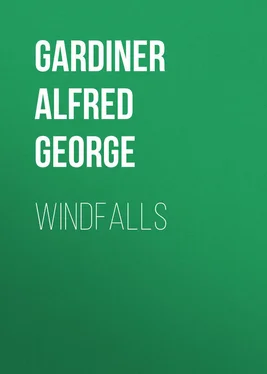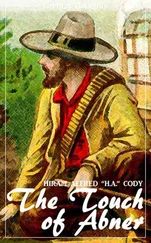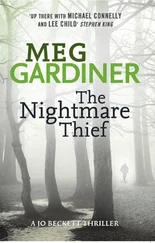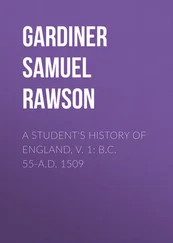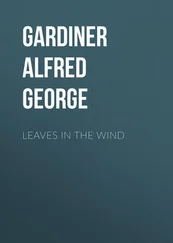Alfred Gardiner - Windfalls
Здесь есть возможность читать онлайн «Alfred Gardiner - Windfalls» — ознакомительный отрывок электронной книги совершенно бесплатно, а после прочтения отрывка купить полную версию. В некоторых случаях можно слушать аудио, скачать через торрент в формате fb2 и присутствует краткое содержание. Жанр: foreign_antique, foreign_prose, на английском языке. Описание произведения, (предисловие) а так же отзывы посетителей доступны на портале библиотеки ЛибКат.
- Название:Windfalls
- Автор:
- Жанр:
- Год:неизвестен
- ISBN:нет данных
- Рейтинг книги:3 / 5. Голосов: 1
-
Избранное:Добавить в избранное
- Отзывы:
-
Ваша оценка:
- 60
- 1
- 2
- 3
- 4
- 5
Windfalls: краткое содержание, описание и аннотация
Предлагаем к чтению аннотацию, описание, краткое содержание или предисловие (зависит от того, что написал сам автор книги «Windfalls»). Если вы не нашли необходимую информацию о книге — напишите в комментариях, мы постараемся отыскать её.
Windfalls — читать онлайн ознакомительный отрывок
Ниже представлен текст книги, разбитый по страницам. Система сохранения места последней прочитанной страницы, позволяет с удобством читать онлайн бесплатно книгу «Windfalls», без необходимости каждый раз заново искать на чём Вы остановились. Поставьте закладку, и сможете в любой момент перейти на страницу, на которой закончили чтение.
Интервал:
Закладка:
It is not only in his liking for beer that the wasp resembles man. Like him, too, he is an omnivorous eater. If you don’t pick your pears in the nick of time he will devastate them nearly as completely as the starling devastates the cherry tree. He loves butcher’s meat, raw or cooked, and I like to see the workman-like way in which he saws off his little joint, usually fat, and sails away with it for home. But his real virtue, and this is why I say a good word for him, is that he is a clean fellow, and is the enemy of that unclean creature the fly, especially of that supreme abomination, the blow fly. His method in dealing with it is very cunning. I saw him at work on the table at lunch the other day. He got the blow fly down, but did not kill it. With his mandibles he sawed off one of the creature’s wings to prevent the possibility of escape, and then with a huge effort lifted it bodily and sailed heavily away. And I confess he carried my enthusiastic approval with him. There goes a whole generation of flies, said I, nipped in the bud.
And let this be said for him also: he has bowels of compassion. He will help a fellow in distress.
Fabre records that he once observed a number of wasps taking food to one that was unable to fly owing to an injury to its wings. This was continued for days, and the attendant wasps were frequently seen to stroke gently the injured wings.
There is, of course, a contra account, especially in the minds of those who keep bees and have seen a host of wasps raiding a weak stock and carrying the hive by storm. I am far from wishing to represent the wasp as an unmitigated blessing. He is not that, and when I see a queen wasp sunning herself in the early spring days I consider it my business to kill her. I am sure that there will be enough without that one. But in preserving the equilibrium of nature the wasp has its uses, and if we wish ill to flies we ought to have a reasonable measure of tolerance for their enemy.
ON PILLAR ROCK
Those, we are told, who have heard the East a-calling “never heed naught else.” Perhaps it is so; but they can never have heard the call of Lakeland at New Year. They can never have scrambled up the screes of the Great Gable on winter days to try a fall with the Arrow Head and the Needle, the Chimney and Kern Knotts Crack; never have seen the mighty Pillar Rock beckoning them from the top of Black Sail Pass, nor the inn lights far down in the valley calling them back from the mountains when night has fallen; never have sat round the inn fire and talked of the jolly perils of the day, or played chess with the landlord – and been beaten – or gone to bed with the refrain of the climbers’ chorus still challenging the roar of the wind outside —
Come, let us tie the rope, the rope, the rope,
Come, let us link it round, round, round.
And he that will not climb to-day
Why – leave him on the ground, the ground, the ground.
If you have done these things you will not make much of the call of the temple bells and the palm trees and the spicy garlic smells – least of all at New Year. You will hear instead the call of the Pillar Rock and the chorus from the lonely inn. You will don your oldest clothes and wind the rope around you – singing meanwhile “the rope, the rope,” – and take the night train, and at nine or so next morning you will step out at that gateway of the enchanted land – Keswick. Keswick! Wastdale!.. Let us pause on the music of those words… There are men to whom they open the magic casements at a breath.
And at Keswick you call on George Abraham. It would be absurd to go to Keswick without calling on George Abraham. You might as well go to Wastdale Head without calling on the Pillar Rock. And George tells you that of course he will be over at Wastdale on New Year’s Eve and will climb the Pillar Rock or Scafell Pinnacle with you on New Year’s Day.
The trap is at the door, you mount, you wave adieus, and are soon jolting down the road that runs by Derwentwater, where every object is an old friend, whom absence only makes more dear. Here is the Bowder Stone and there across the Lake is Causey Pike, peeping over the brow of Cat Bells. (Ah! the summer days on Causey Pike, scrambling and picking wimberries and waking the echoes of Grisedale.)
And there before us are the dark Jaws of Borrowdale and, beyond, the billowy summits of Great Gable and Scafell. And all around are the rocky sentinels of the valley. You know everyone and hail him by his name. Perhaps you jump down at Lodore and scramble up to the Falls. Then on to Rosthwaite and lunch.
And here the last rags of the lower world are shed. Fleet Street is a myth and London a frenzied dream. You are at the portals of the sanctuary and the great peace of the mountains is yours. You sling your rucksack on your back and your rope over your shoulder and set out on the three hours’ tramp over Styhead Pass to Wastdale.
It is dark when you reach the inn yard for the way down is long and these December days are short. And on the threshold you are welcomed by the landlord and landlady – heirs of Auld Will Ritson – and in the flagged entrance you see coils of rope and rucksacks and a noble array of climbers’ boots – boots that make the heart sing to look upon, boots that have struck music out of many a rocky breast, boots whose missing nails has each a story of its own. You put your own among them, don your slippers, and plunge among your old companions of the rocks with jolly greeting and pass words. What a mingled gathering it is – a master from a school in the West, a jolly lawyer from Lancashire, a young clergyman, a barrister from the Temple, a manufacturer from Nottingham, and so on. But the disguises they wear to the world are cast aside, and the eternal boy that refuses to grow up is revealed in all of them.
Who shall tell of the days and nights that follow? – of the songs that are sung, and the “traverses” that are made round the billiard room and the barn, of the talk of handholds and footholds on this and that famous climb, of the letting in of the New Year, of the early breakfasts and the departures for the mountains, of the nights when, tired and rich with new memories, you all foregather again – save only, perhaps, the jolly lawyer and his fellows who have lost their way back from Scafell, and for whom you are about to send out a search party when they turn up out of the darkness with new material for fireside tales.
Let us take one picture from many. It is New Year’s Day – clear and bright, patches of snow on the mountains and a touch of frost in the air. In the hall there is a mob of gay adventurers, tying up ropes, putting on putties, filling rucksacks with provisions, hunting for boots (the boots are all alike, but you recognise them by your missing nails). We separate at the threshold – this group for the Great Gable, that for Scafell, ours, which includes George Abraham, for the Pillar Rock. It is a two and a half hour’s tramp thither by Black Sail Pass, and as daylight is short there is no time to waste. We follow the water course up the valley, splash through marshes, faintly veneered with ice, cross the stream where the boulders give a decent foothold, and mount the steep ascent of Black Sail. From the top of the Pass we look down lonely Ennerdale, where, springing from the flank of the Pillar mountain, is the great Rock we have come to challenge. It stands like a tower, gloomy, impregnable, sheer, 600 feet from its northern base to its summit, split on the south side by Jordan Gap that divides the High Man or main rock from Pisgah, the lesser rock.
We have been overtaken by another party of three from the inn – one in a white jersey which, for reasons that will appear, I shall always remember. Together we follow the High Level Traverse, the track that leads round the flank of the mountain to the top of Walker’s Gully, the grim descent to the valley, loved by the climber for the perils to which it invites him. Here wre lunch and here we separate. We, unambitious (having three passengers in our party of five), are climbing the East face by the Notch and Slab route; the others are ascending by the New West route, one of the more difficult climbs. Our start is here; theirs is from the other side of Jordan Gap. It is not of our climb that I wish to speak, but of theirs. In the old literature of the Rock you will find the Slab and Notch route treated as a difficult feat; but to-day it is held in little esteem.
Читать дальшеИнтервал:
Закладка:
Похожие книги на «Windfalls»
Представляем Вашему вниманию похожие книги на «Windfalls» списком для выбора. Мы отобрали схожую по названию и смыслу литературу в надежде предоставить читателям больше вариантов отыскать новые, интересные, ещё непрочитанные произведения.
Обсуждение, отзывы о книге «Windfalls» и просто собственные мнения читателей. Оставьте ваши комментарии, напишите, что Вы думаете о произведении, его смысле или главных героях. Укажите что конкретно понравилось, а что нет, и почему Вы так считаете.
